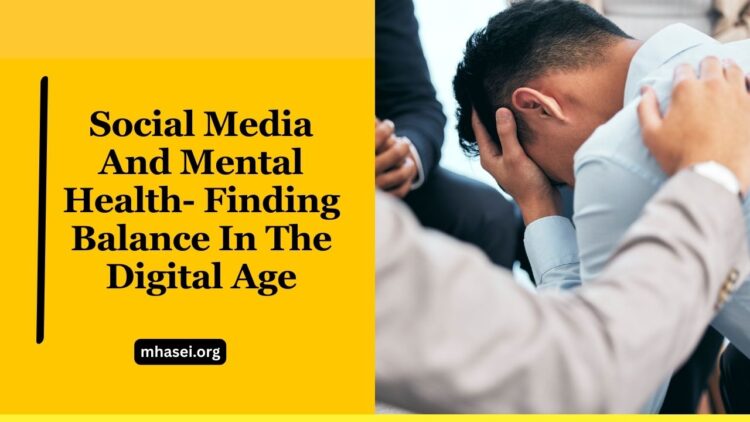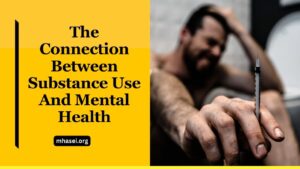With social media woven into daily life, its mental health impact can no longer be ignored. Teens increasingly report negative effects—by 2025, nearly half believe these platforms harm their peers, up from one-third just a few years ago.
And more of them now admit they’re spending too much time online, especially girls facing greater mental health and sleep disruptions.
Heavy users face measurable risks: adolescents who spend over 3 hours daily on social media double their likelihood of experiencing depression or anxiety symptoms. Among youth already struggling with depression or suicidal thoughts, 40% report problematic social media habits—like feeling distressed when offline.
Sleep suffers too: late-night usage causes sleep loss, insomnia, and disrupted quality, impacting focus, memory, and mood.
Excessive exposure also contributes to intensified self-comparisons and low self-esteem. Particularly concerning is the rise in comparisons driven by influencer culture and curated feeds.
At a Glance: Social Media’s Mental Health Impact
| Issue | Effect | Magnitude |
|---|---|---|
| Negative peer perception | Teens see social media as harmful | ~48% of teens |
| Overuse awareness | Teens admit excessive use | ~45% of teens |
| Risk of mental health problems | Linked to long daily use | 2× higher risk with >3h/day |
| Emotional distress when offline | Troubled youth report problems | ~40% |
| Depression increase among heavy users | Correlated with usage | ~27% rise |
| Sleep disruption | Due to late-night use, blue light | Less sleep, poor quality |
| Self-comparison impact | Lowers self-esteem, raises anxiety | ~40% feel inadequate |
| AI companion risks | Replacing real relationships | ~75% tried, ~20% spend more time online |
Understanding the Connection
1. Overload & Comparison Culture
Excessive scrolling exposes users to unrealistic lifestyles and beauty standards, encouraging social comparison that fuels low self-worth and anxiety—especially among adolescents. Nighttime scrolling also suppresses melatonin, disrupting sleep and undermining well-being.
2. Mental Health Risk Escalating
Adolescents who exceed moderate social media use face doubled risks for anxiety and depression. Among already vulnerable youth, a significant share experience heightened emotional distress tied to social media dependency.
3. AI Companions and Emotional Substitutes
Many teens are exploring AI companion apps—nearly three-quarters have tried them, and a fifth use them more than real friends.
While they may feel comforting, there’s a risk of stunted social skill development and emotional dependence if used as replacements rather than supplements.
How to Restore Digital Well-Being
A. Set Smart Boundaries
Limit screen time intentionally—especially before bed—to preserve sleep and mental clarity. Implement “phone-free” zones like at meals or during wind-down time. Even short unplugged intervals can reduce stress.
B. Curate a Healthier Feed
Unfollow accounts that trigger comparison or negativity. Replace them with content that uplifts or informs. Purposeful scrolling—like for hobbies or learning—reduces doom-scrolling fatigue.
C. Digital Detox & Mindful Breaks
Take scheduled digital breaks—whether a few hours or a full weekend. These pauses can enhance mood, increase focus, and strengthen real-life connections. Tools reminding you of your original intent—like time-use nudges—support mindful habits rather than harsh restrictions.
D. Balance Real & Virtual Life
Encourage offline social activities—sports, hobbies, walking with friends. Reconnect with face-to-face interactions to build emotional resilience and reduce reliance on virtual validation.
Social media offers both connection and challenge. As its influence expands, recognizing the risks—like anxiety, disrupted sleep, emotional dependence, and unhealthy comparisons—is vital.
But balance is possible. Through mindful habit changes—setting boundaries, curating content, unplugging regularly, and investing in real-life relationships—we can protect mental health while still enjoying digital benefits.
FAQs
How much screen time is too much?
More than 3 hours daily on social media doubles the risk of anxiety or depression in youth. If usage starts affecting sleep, mood, or routines, it’s time to cut back.
Can AI companions be helpful?
They may offer comfort, but overuse—especially when replacing real social connections—can impair social skills and emotional health. Use them sparingly, and prioritize human interaction.
What’s the simplest way to improve digital balance?
Start small: set a daily screen limit, create phone-free meal times, or schedule nightly unplugging. Mindful usage habits can improve sleep, reduce stress, and boost real-life connections.




